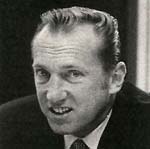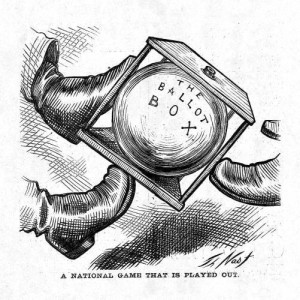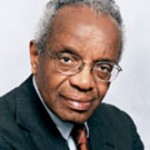Al Davis, R.I.P.
 The late Al Davis, the mercurial owner and general manager of the Oakland Raiders football team, arguably had a greater impact on American sports law than any member of his generation.
The late Al Davis, the mercurial owner and general manager of the Oakland Raiders football team, arguably had a greater impact on American sports law than any member of his generation.
Davis reached the pinnacle of American sport even though he possessed neither great athletic ability nor access to financial resources. Born in Brocton, Massachusetts, Davis spent his childhood and adolescence in Brooklyn, and his voice never lost its New York edges. After finishing Erasmus High School in Brooklyn shortly after the end of the Second World War, Davis entered Syracuse University hoping to play either football or baseball. His lack of success on the playing fields prompted him to transfer to Wittenberg University in Springfield, Ohio, but after a year there, he transferred back to Syracuse where he played on the junior varsity football team and sought unsuccessfully to land some sort of coaching or managerial position with the varsity.
After graduating from Syracuse with a degree in English in 1950, Davis relied on New York connections to land a job as an assistant football coach at Adelphi University on Long Island, and for the rest of the 1950’s, he travelled from one assistant coaching job to another, putting in time at Adelphi, the U.S. Army base at Ft. Belvoir, the Citadel, and at the University of Southern California where he helped coach the offensive line.
His big break came in 1960 when former Los Angeles Rams head coach (and fellow Jew) Sid Gillman tabbed Davis to be part of his staff with the Los Angeles Chargers of the newly organized American Football League. Davis stayed with the Chargers when they moved to San Diego the following year, but he left the team in 1963 to assume the position of head coach and general manager of the league’s hapless Oakland Raiders.
Only 33 years old and a head coach for the first time in his career, Davis led the Raiders to their first winning season ever and was named the AFL’s Coach of the Year.
In April, 1966, the AFL league owners chose Davis as the league new commissioner, following the resignation of original commissioner, Joe Foss. Immediately upon assuming office, Davis launched a raid on the rosters of the rival National Football League, and signed a number of the senior league’s star players to future contracts with the AFL. (Included among those signing AFL contracts in 1966 were seven of the fifteen starting quarterbacks in the NFL and Chicago Bears star tight end, Mike Ditka.) Davis’ aggressive policies helped prompt the NFL owners to propose a merger of the two leagues, an offer that the AFL owners willingly accepted.
After the merger agreement was signed, Davis stepped down as commissioner (after a term of only four months), and returned to the Oakland Raiders. In addition to reassuming his duties as General Manager, he also purchased a 10% ownership share in the team, making him one of three owners. In 1972, he cleverly ousted managing partner F. Wayne Valley (who had originally hired Davis as coach and general manager after the 1962 season) and took over control of the team. He remained the team’s managing partner for the rest of his life, even though he did not become the majority owner until 2005.
During his tenure, the Raiders had the best overall record in professional football. His team played in five Super Bowls, winning three times (1976, 1980, 1983), and losing twice (1967 and 2002). For his accomplishments with the Raiders, Davis was inducted into the NFL Hall of Fame in 1992.
Davis’ greatest contribution to “sports law” came in 1980, when he filed an antitrust lawsuit against his fellow NFL owners when they refused to permit him to relocate his team from Oakland to Los Angeles. Davis prevailed, and while he eventually returned the team to Oakland, he helped establish that the NFL was not a single entity for antitrust purposes (a holding confirmed by the Supreme Court in its recent American Needle decision).
The Raiders lawsuit also made it clear that the internal rules of a professional sports league could be challenged on antitrust grounds by a dissenting team owner, even if they were adopted by procedures agreed to by the disgruntled owner at the time that the team was acquired.
Since the Raiders case, all professional sports leagues in the United States (except for the antitrust-exempt Major League Baseball) have had to operate with the specter of antitrust litigation hanging over their heads when they deal with non-cooperative owners.
An even greater contribution might have been the one that Davis tried unsuccessfully to advance in 1966 when he was the AFL Commissioner.
It has been a fact of life in the history of American teams sports that there are almost never competitor major leagues in the same sport. Although there have been many efforts to establish competitor major leagues, the upstart leagues either fold—like 19th century Union Association and Players League, the Federal League, the first three American Football Leagues, the World Football League, the United States Football League, the XFL, the National Basketball League, the American Basketball Association, and the World Hockey League—or else they merge with the existing league—as in the case of the 19th century American Association, the American League, the All America Football Conference, and the National Basketball League.
The one league that seemed capable of continuing on an independent course was Davis’ American Football League. By 1966, the league was approaching parity with the NFL on the playing field and with a television contract with NBC providing the league with financial security, it could have continued to operate as an independent entity. This was Davis’ intention when he took the reins as commissioner, and he resigned when he learned that the league’s owners had negotiated a merger agreement (and an antitrust exemption from Congress) behind his back.
Had Davis’ had his way in 1966, the major North American sports leagues might not have developed into the monopolies that dominate the sports landscape in the present day.
Davis was also completely indifferent on matters of race, ethnicity, and religion. He was one of the first general managers to draft large number s of players from historically black colleges, and he was the first general manager in the modern era to hire an African-American head coach (Art Shell, 1989) and the first to hire an Hispanic for that position (Tom Flores, 1979).
Wherever Davis has ended up in the hereafter, it is a good bet that he is still using the motto, “Just win, baby” and that he is still scheming for ways to improve the fortunes of his beloved “Raiduhs.”
For what it is worth, the team did win its first game in his absence, a 25-20 triumph over the Houston Texans.


